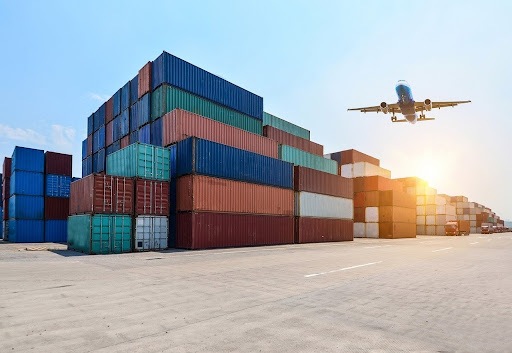Taking Your e-Commerce Business International? Here’s How a Freight Company Can Help
Written by
Editorial TeamPublished on

With so many British businesses that are now based – at least, in part – online, it should come as little surprise that many e-commerce store owners are looking to increase their international standing, not just their domestic one. However, many e-commerce businesses are small enterprises with just a few employees on their payroll at most. What this often means is that they do not have the in-house know-how to get an international operation up and running.
Although trial and error is certainly one way to get an e-commerce business operating internationally, it is not the best approach to take. Failures, even if you put them down to teething troubles as you learn what to do to get goods over international borders, will let customers down and can damage your reputation. Even worse, you could fall foul of the rules with imports and exports either here in the UK or overseas. Either way, this could lead to fines being imposed or, in some cases, your goods being impounded by the authorities. What should you do instead?
Freight Forwarding Expertise
To begin with, freight forwarders specialise in finding the most economic routes to get goods from one part of the world to another. This isn’t all they do but it is one of the primary tasks that e-commerce enterprises can benefit from. You could employ your own freight forwarder to manage your consignments – whether you are importing them or exporting them – but this will come with a heavy price tag. Such skills are in-demand and, what’s more, they are expensive to develop with further professional training.
Therefore, the best way of handling freight forwarding, which will cover anything from goods in transit insurance to groupage – the consolidation of multiple container shipments – is to turn to a specialist firm instead. By outsourcing your freight forwarding, you will often find that deliveries are made more rapidly and cheaper than they otherwise would. Even better, you ought to find that you are able to track your consignments whether they’re on their way from your suppliers or making their way to your customers.
According to Barrington Freight, a British firm specialising in freight forwarding, international shipments have to be handled professionally these days even if goods are coming to or from the European Union due to the changes that hauliers have faced in recent times. Of course, this is largely down to the fact that the UK is no longer part of the EU’s customs union.
However, the same sorts of benefits on offer from professional freight forwarders are just as advantageous to e-commerce enterprises whether or not their goods are being shipped to and from the EU or any other trading bloc in the world. Importantly, this is the case whether you are literally shipping goods with shipping containers, using road hauliers or even air freight operators.
Customs Clearance Agency Work
Getting goods between two locations internationally is what freight forwarders do but you still need expertise to get items through the customs process when they reach the border. If you are importing from China, for example, you’ll need to know which HMRC consignment codes to use.
If you are shipping from the UK to overseas, then you’ll need even more knowledge of the customs rules that are in place where you are exporting to. Customs clearance agencies deal with all these issues, as well as business tax. Find one that is properly licensed in this sort of work and, ideally, a company that can also undertake your freight forwarding work at the same time. Otherwise, you may fall foul of customs officials.
The problem with inadequately declared paperwork for goods that are crossing international borders is that it tends to cause more of a headache to sort out than you might, at first, expect. Not only can imports be delayed while they are held at a port, for example, before recommencing their onward journey but fines could potentially be imposed, as well.
What’s even worse for e-commerce firms is that improperly declared excise duty, where it is applicable, or errors with VAT declarations can make HMRC suspicious. In the worst cases, this won’t just result in delays while your documents and declarations are updated but it could end up with a full VAT audit of your entire business.
As a result, hiring a customs clearance agent who can also deal with your freight forwarding requirements won’t just streamline your logistical operation but could save your firm thousands in time and resources that would otherwise be tied up dealing with such a root and branch inspection.


